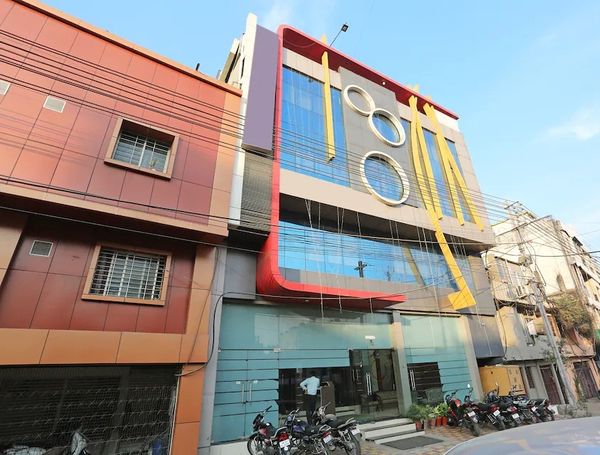Ayurvedic Therapy in Delhi: A Comprehensive Overview
 Rawat Sikhar
05 Nov, 2024
13 mins read
8
Rawat Sikhar
05 Nov, 2024
13 mins read
8

Ayurveda, an ancient system of medicine that originated in India more than 5,000 years ago, is known for its holistic approach to health and wellness. Derived from two Sanskrit words, "Ayur" meaning life, and "Veda" meaning knowledge, Ayurveda is the "knowledge of life." It focuses on achieving balance in the body, mind, and spirit through natural remedies, lifestyle changes, and personalized treatment plans. Today, in a modern and bustling city like Delhi, Ayurvedic therapy has become an increasingly popular choice for people seeking an alternative or complementary form of healthcare.
In this comprehensive article, we will explore Ayurvedic therapy in Delhi, its significance, the various treatments offered, how it integrates with modern healthcare, and where to find reputed Ayurvedic centers in the city. Whether you are seeking to manage chronic conditions, reduce stress, or enhance your overall well-being, this guide will provide valuable insights into Ayurveda’s healing potential.
1. The Growing Popularity of Ayurveda in Delhi
Delhi, India’s capital and a hub of culture, education, and commerce, is also a thriving center for traditional healing systems, including Ayurveda. With growing concerns about the side effects of modern medications, increasing stress levels, and the desire for natural, preventive health practices, many people in Delhi have turned to Ayurvedic therapies for a balanced and holistic approach to health.
Ayurvedic therapy in Delhi has witnessed significant growth due to a rise in wellness tourism, increasing awareness of natural health practices, and the availability of trained Ayurvedic practitioners. The city is home to numerous Ayurvedic clinics, spas, and wellness centers that cater to a diverse clientele, offering a range of treatments from detoxification to rejuvenation, pain management, and stress relief.
2. Key Principles of Ayurveda
Ayurveda is based on the understanding that health is a state of balance among the body, mind, and spirit, with the five elements—earth, water, fire, air, and ether—working in harmony. According to Ayurveda, every individual has a unique constitution (Prakriti) that is made up of three primary doshas (energies): Vata, Pitta, and Kapha. Each dosha is a combination of two of the five elements and governs specific functions in the body.
- Vata: Associated with air and ether, Vata governs movement, circulation, and communication within the body.
- Pitta: Associated with fire and water, Pitta governs digestion, metabolism, and transformation.
- Kapha: Associated with earth and water, Kapha governs structure, immunity, and lubrication.
Ayurvedic therapy aims to restore balance between these doshas, as any imbalance is believed to lead to illness. The treatments are personalized based on an individual’s dosha constitution, age, lifestyle, and other factors.
3. Types of Ayurvedic Treatments in Delhi
Ayurvedic therapies in Delhi encompass a wide range of treatments that can be tailored to address specific health conditions, improve mental clarity, and enhance overall well-being. Some of the most popular treatments available include:
a) Panchakarma Therapy
One of the cornerstone treatments in Ayurveda, Panchakarma is a detoxification and rejuvenation therapy designed to remove toxins (ama) from the body and restore balance to the doshas. Panchakarma consists of five main procedures:
- Vamana (Emesis Therapy): Induces controlled vomiting to expel excess mucus and toxins.
- Virechana (Purgation Therapy): Involves the use of medicinal herbs to induce purging, especially for Pitta-related disorders.
- Basti (Enema Therapy): Cleanses the lower digestive tract by administering medicinal oils or decoctions via the rectum.
- Raktamokshana (Bloodletting): A procedure to cleanse the blood and improve circulation.
- Nasya (Nasal Therapy): Involves the administration of medicated oils or powders through the nasal passages to cleanse the sinuses and respiratory system.
Panchakarma therapy is typically recommended for those suffering from chronic conditions, stress, obesity, or digestive issues, and is often performed in Ayurvedic wellness centers across Delhi.
b) Abhyanga (Ayurvedic Massage)
Abhyanga is a traditional Ayurvedic oil massage that helps to balance the doshas, improve circulation, detoxify the body, and promote relaxation. The therapist uses warm herbal oils tailored to the individual's dosha to massage the entire body. This therapy helps in alleviating stress, improving joint flexibility, and promoting better skin health.
Abhyanga is a key treatment offered by Ayurvedic spas in Delhi and is often combined with other therapies like steam baths or herbal baths for a complete rejuvenating experience.
c) Shirodhara
Shirodhara is a therapeutic treatment that involves a continuous stream of warm herbal oil poured over the forehead, specifically on the "third eye" area (the center of the forehead). This treatment is known for its calming and soothing effects on the mind and is commonly used to treat conditions like anxiety, insomnia, and stress.
Shirodhara is also considered beneficial for improving concentration and mental clarity. Many Ayurvedic centers in Delhi offer this treatment as part of their wellness packages.
d) Herbal Remedies and Dietary Consultation
Ayurvedic practitioners in Delhi often recommend herbal remedies and dietary changes as part of their personalized treatment plans. Ayurvedic herbs such as Ashwagandha, Triphala, Tulsi, and Brahmi are commonly used to enhance immunity, improve digestion, and support mental health.
Dietary consultations focus on balancing the doshas through food choices. For instance, individuals with a Pitta imbalance may be advised to avoid spicy foods, while those with a Vata imbalance might be encouraged to eat warm, nourishing foods. In addition, Ayurvedic practitioners may recommend detox diets or fasting protocols based on the individual's health condition.
e) Chronic Pain Management and Joint Care
Ayurvedic therapies are widely used to manage chronic pain, inflammation, and conditions like arthritis, fibromyalgia, and back pain. Treatments such as Elakizhi (a herbal poultice therapy) and Kati Basti (a localized treatment for lower back pain) are particularly effective in managing musculoskeletal issues.
Ayurveda employs external therapies, internal herbal formulations, and lifestyle changes to alleviate pain, reduce inflammation, and improve joint mobility.
f) Skin and Hair Care Treatments
Ayurvedic skin and hair care therapies are gaining popularity in Delhi, with treatments focused on natural and holistic approaches. Herbal facials, customized oils, and Ayurvedic skin care products are used to treat acne, pigmentation, premature aging, and other skin conditions.
Hair treatments like Shirobasti (oil treatment for the scalp) and Padabhyanga (foot massage) are used to promote healthy hair growth and prevent hair fall.
4. Benefits of Ayurvedic Therapy
Ayurvedic therapies offer a wide range of benefits, both physical and mental. Some of the key advantages include:
- Detoxification: Panchakarma and other Ayurvedic treatments help to remove toxins (ama) from the body, thereby improving overall health.
- Stress Reduction: Practices like Abhyanga, Shirodhara, and meditation help reduce stress and promote mental well-being.
- Improved Digestion: Ayurvedic treatments can enhance digestion, improve metabolism, and treat gastrointestinal issues such as bloating, constipation, and acidity.
- Pain Management: Ayurveda offers effective natural treatments for managing chronic pain, joint pain, and inflammation.
- Prevention and Immunity Boosting: Ayurveda emphasizes preventive health practices and dietary changes to strengthen the immune system and prevent illness.
- Balanced Skin and Hair: Ayurvedic skin and hair treatments are gentle, nourishing, and free from synthetic chemicals, helping to achieve healthy and glowing skin.
5. Modern Integration of Ayurveda with Conventional Medicine in Delhi
While Ayurveda is a holistic approach to health, it is often integrated with modern medical practices in Delhi to provide a comprehensive treatment plan. Many Ayurvedic practitioners collaborate with conventional doctors, especially for chronic diseases like diabetes, hypertension, and cancer, where Ayurveda can provide complementary therapies to reduce symptoms, manage side effects, and improve the quality of life.
For example, Ayurvedic treatments like Panchakarma can be used alongside conventional treatments to help detoxify the body and enhance recovery. Similarly, Ayurvedic herbs and supplements are often recommended to support immune function, manage stress, and improve digestive health.
6. Choosing the Right Ayurvedic Therapy Center in Delhi
When looking for an Ayurvedic therapy center in Delhi, it is important to choose one that has qualified and experienced practitioners. Some factors to consider include:
- Certification and Accreditation: Ensure that the center is registered and follows standard Ayurvedic practices.
- Reputation: Look for reviews and testimonials from previous clients to gauge the quality of the treatments.
- Range of Services: A good Ayurvedic center should offer a wide range of therapies tailored to different needs, from Panchakarma to stress management.
- Trained Practitioners: Ayurveda requires expert knowledge, so it’s crucial to choose a center with skilled practitioners who can accurately diagnose your dosha and create a personalized treatment plan.
- Cleanliness and Ambience: The center should maintain high standards of cleanliness and offer a tranquil environment for relaxation.
7. Conclusion
Ayurvedic therapy in Delhi is an ancient yet increasingly popular choice for those seeking natural and holistic healing. With its emphasis on balancing the mind, body, and spirit, Ayurveda offers a wide range of treatments for chronic conditions, stress relief, detoxification, and overall wellness. Whether you are looking for a rejuvenating massage, a detox program, or a long-term health solution, Ayurvedic centers in Delhi provide a comprehensive and personalized approach to healing.
As Ayurveda continues to thrive alongside modern medical practices, it offers a unique opportunity for people to take charge of their health in a natural and sustainable way. By choosing the right Ayurvedic center, you can experience the timeless benefits of this ancient healing system, contributing to your physical and mental well-being in the heart of India’s capital.
Written By:
Rawat Sikhar



Hotels at your convenience
Now choose your stay according to your preference. From finding a place for your dream destination or a mere weekend getaway to business accommodations or brief stay, we have got you covered. Explore hotels as per your mood.


